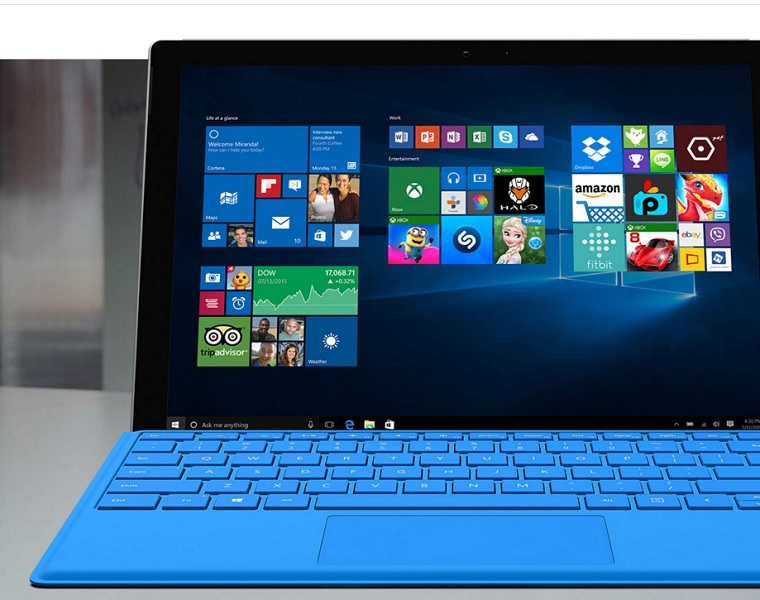Windows 10 PCs: ARM is the hero PC buyers need, not the one they deserve

What do we know about ARM processors? If we were to ask any average Chromebook owner with an understanding of what’s powering their machines, they would say that ARM is “some kind of mobile processor”, which is optimized to run operating systems much less complex and demanding, than Windows 10, and macOS Sierra.
Still, Chromebook laptops do run Linux, which is by and large, a full desktop operating system, with the same capabilities as Windows 10, or macOS.
In fact, a Unix variant, which is the closest approximation to Linux, in mainstream parlance, is what Apple macOS Sierra, and every previous version of Mac OS X are built upon.
This means that at least in theory, an operating system as complex as macOS could run on a laptop or desktop, powered by an ARM chip.
Whether the performance would be enough to satisfy the average user, this remains to be discussed, but one thing is certain: ARM has been shunned by most Windows PC makers, because of the lack of Win32 support, and dodged by Apple, simply because ARM-powered MacBooks would be just like iPads, but without a touchscreen.
The basic issue with ARM chips is this: they can’t run 32-bit Windows applications, much less 64-bit, and they are simply not powerful enough to run high-end programs like Photoshop, which renders a laptop or desktop device powered by an ARM chip, very unappealing to buyers, no matter how low the price tag is, or how silent and power efficient the device is.
This is precisely why Chromebooks have enjoyed such incredible success. Google has come up with the amazing idea of creating an operating system stripped down to its bare functions, and build a mobile, cloud-based environment, wrapped into a web browser on steroids, with a suite of web-based productivity applications, so tightly tuned with the hardware, that there is virtually no difference between working on a Chromebook, or on a typical Intel-based PC, as long as we stick to using Google apps, and store apps.
This makes it for a great netbook, for those who need just enough computing power to type school papers, watch Netflix, and shop online, but not nearly enough to do anything more advanced.
With that said, the story of ARM is barely at chapter one of a long saga, especially since Microsoft and Intel seem to be very motivated in pushing ARM as something well beyond what it is today.
Microsoft, for one, is working towards enabling win32 applications support on ARM chips, which means that ARM devices could soon run versions of Windows 10 that could fall somewhere in between the definitions of “mobile” and “desktop” operating system.
While it might take a long while before any 64-bit applications follow suit, the prospect is exciting, because ARM chips are geared towards battery efficiency and streamlined resource handling, which translates into smaller, lighter, faster, and longer-lasting devices.
Of course excitement must be tempered by reason, and most likely, the first desktop applications to be ARM friendly, will need a little tweaking, as well as a few filesystem allowances, such as different instruction sets, as well as a slightly more simplified method to manage memory, in order to run more complex applications without crashes or generalized system instability.
At any rate, there is certainly a demand for more affordable devices that can do more than Chromebooks, and this is where ARM could save the day, by introducing a new class of desktop and laptop PCs, designed with budget consumers in mind. Still...
Why isn’t ARM the hero PC buyers deserve?
ARM can be a boon for consumers on a budget, however it can be a curse for PC makers, as it would mean increased resources towards optimizing PCs that can only do “so much”, by creating a “mediocre” class of desktop and laptop devices, which will likely cause consumers to yearn for something better, until such time as ARM truly achieves acceptable performance for the average consumer.
With this in mind, there is no telling of how long it might take, considering that chip maker are generally focused on building faster, more powerful chips, rather than trying to squeeze more power and speed from inferior architectures, at least for the moment.
Ready to shop?
If you are looking for the ultimate Windows 10 tablet, PortableOne has the best deals on Surface Pro 3 and Surface Pro 4, as well as a full range of accessories.